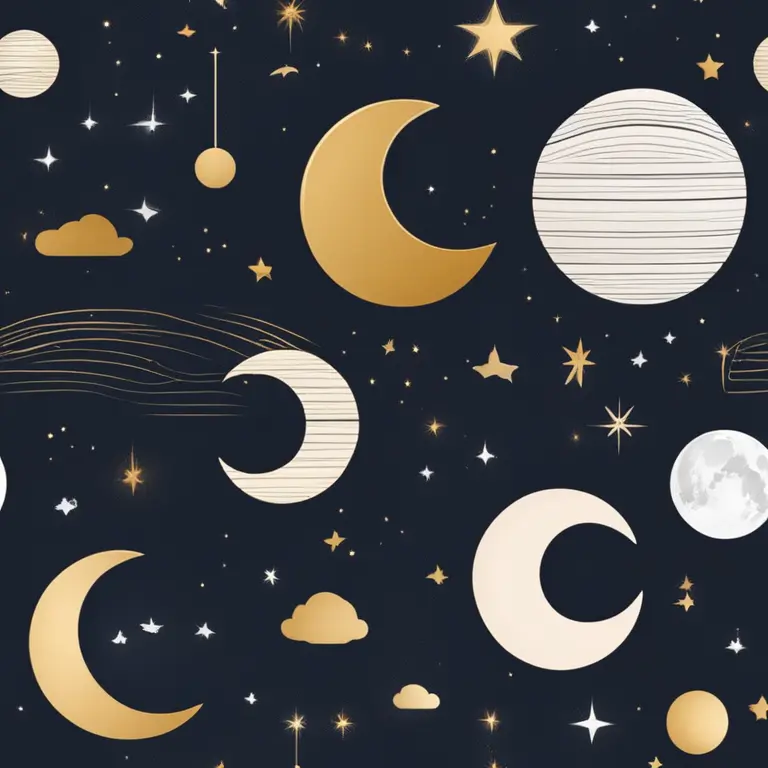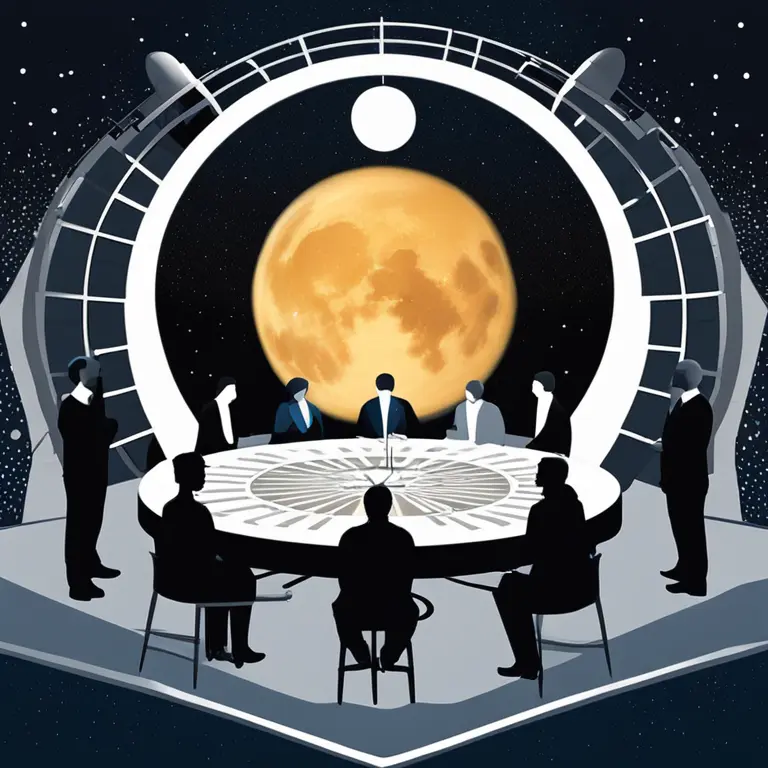
Does the Moon Phase Influence Sleep Patterns?
Examine the mysterious ties between lunar cycles and sleep quality in our article on how moon phases might affect rest.
article by Priya Deshmukh
Moon Mystique and Sleep Cycles
Many have pondered whether the moon, which orchestrates the tides and lights the night sky, could also hold sway over our sleep. Anecdotal evidence throughout history has suggested a link between the lunar phase and sleep quality. Science, however, seeks empirical evidence to validate such claims. With the lunar calendar turning, could the full moon's glistening splendor or the new moon's shadowy retreat really influence the human body? This article embarks on a voyage through the night to uncover possible connections between lunar phases and the rhythm of our slumber.

Lunar Lore in Contemporary Research
The intrigue of lunar influence has entered the scope of contemporary research with various studies aimed at demystifying this celestial relationship. The gravitational pull of the moon is known to affect bodies of water, so the question arises: could it similarly affect the human body, composed mainly of water? Early research offers inconclusive and often contradictory findings, yet the quest to quantify and understand this possible phenomenon continues into 2024 and beyond. As researchers delve deeper, their goal is to produce reproducible results to either solidify or dismiss the lunar effect on sleep.

Phases of the Moon: A Sleep Connection?
Each lunar cycle spans approximately 29.5 days, rotating through distinct phases from new moon to full moon and back again. Folklore and some sleep studies imply that the full moon phase may cause restlessness or disrupt sleep patterns. Conversely, the dark silence cast by the new moon is thought to be a harbinger of deeper, more restful sleep. Could the light from a full moon penetrating our bedrooms be the simple cause, or are there more intricate biological rhythms at play, unseen yet omnipresent, like the moon's own gravitational dance?

Chronobiology and Circalunar Rhythms
Chronobiology is the science that examines periodic phenomena in living organisms and their adaptation to solar and lunar related rhythms. Recently, the spotlight has turned to circalunar rhythms—the biological changes tied to the moon's cycle. Though not as widely accepted or understood as circadian rhythms, the interest is growing in the potential impact of circalunar rhythms on human biology. As we progress through the 2020s, the chronobiological community's findings could reveal astonishing insights into how we sync with the cosmic clock.
Societal and Psychological Influencers
Separating the moon's potential influence on sleep from societal and psychological factors is challenging. Modern life bombards us with artificial light and constant stimulation, which can derail our natural sleep patterns. Moreover, our beliefs about the moon's effects might have a placebo effect, thereby influencing our perception of sleep quality during different moon phases. Consequently, the psychological aspect becomes an essential variable in understanding and quantifying the moon's true impact on sleep.
Facing the Future: Lunar Research Advances
As we gaze ahead, the future of lunar-sleep research holds promise. Advancements in technology may permit more precise and comprehensive studies. Astrological forecasts for 2024 predict potent lunar activity with possible implications for sleep research. The tools and methodologies we develop now could unveil correlations previously shrouded in mystery. Ultimately, bridging the gap between ancient wisdom and modern science could illuminate the enigmatic influence of the moon on our nocturnal lives.
Published: 1/19/2024
Modified: 1/19/2024
More predictions
Come back here soon to learn more about yourself and your future


Moon Phase Soulmates: Cosmic Bonds in Love
Discover the enchanting connection between moon phases and soulmate relationships in this insightful article on cosmic synergy in love.


The Precision of Moon Phase Watches: A Detailed Review
Delve into the world of astronomical timepieces as we discuss the accuracy of moon phase watches and their place in the realms of timekeeping and astrology.


Are Moon Phases Universal?
Delve into the intriguing question of whether the moon phase is the same across all locations on our planet, and how this celestial phenomenon influences astrology and horoscopes.